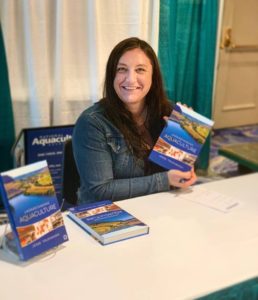

News
President Jesse Trushenski: Recreational and Re‐Creational Fishing
I grew up in the rural West, on a 5‐acre parcel of land just outside of Pomeroy, Washington. We had horses and chickens and barn
American Fisheries Society Family of Websites:
Read our five journals and Fisheries magazine
Find thousands of unpublished agency reports and other information
Join us in Honolulu in 2024
Find an AFS Unit near you or in your area of specialty
Learn how to communicate the effects of climate change on fisheries
Summer internships for high school students
Explore our initiatives to increase diversity in the Society and in the fisheries profession
Find fisheries science products and services
Quick answers to common questions


I grew up in the rural West, on a 5‐acre parcel of land just outside of Pomeroy, Washington. We had horses and chickens and barn

